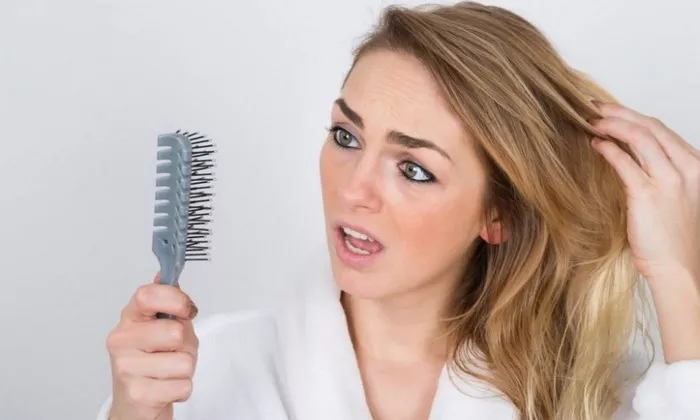In the quest for healthy hair, factors like diet, genetics, and proper hair care often take precedence. However, the impact of sleep, or the lack thereof, on hair health is a topic that warrants attention. This article delves into the question of whether the inability to sleep, specifically insomnia, can be a contributing factor to hair loss, exploring the intricate relationship between restful nights and vibrant locks.
The Sleep-Hair Dynamic: A Symbiotic Relationship
Sleep is a cornerstone of overall health, and its significance extends to the vitality of our hair. The intricate relationship between sleep and hair health involves a delicate dance of hormones, cellular repair, and the body’s circadian rhythm. Disruptions to this dance, such as chronic insomnia, can potentially tip the scales towards hair loss.
Cortisol Surge: Stress Hormones and Hair Loss
One of the primary mechanisms through which insomnia may contribute to hair loss is by elevating stress hormone levels, particularly cortisol. Sleep disturbances, such as those experienced with insomnia, trigger a heightened release of cortisol, which can disrupt the normal hair growth cycle. Elevated cortisol levels may push hair follicles into the telogen (resting) phase prematurely, leading to increased hair shedding.
Disrupting the Circadian Rhythm: Impact on Hair Growth
The body’s circadian rhythm, often referred to as the internal body clock, regulates various physiological processes, including hair growth. Quality sleep is essential for maintaining a well-functioning circadian rhythm. Insomnia disrupts this natural cycle, potentially leading to irregularities in the hair growth phases and hindering the optimal functioning of hair follicles.
Melatonin Deprivation: Oxidative Stress on Hair Follicles
Melatonin, the hormone responsible for regulating sleep-wake cycles, plays a vital role in protecting hair follicles from oxidative stress. Sleep disturbances, such as those associated with insomnia, can result in melatonin deprivation. This, in turn, may render hair follicles more susceptible to damage from oxidative stress, potentially contributing to hair loss.
Inflammatory Cascade: A Link between Insomnia and Alopecia Areata
Chronic insomnia can lead to a state of heightened inflammation in the body. This inflammatory cascade has been implicated in autoimmune conditions, including alopecia areata. In alopecia areata, the immune system mistakenly targets and attacks hair follicles, leading to hair loss. While the direct connection between insomnia and alopecia areata requires further research, managing inflammation through adequate sleep is a prudent approach.
Telogen Effluvium: Insomnia’s Role in Temporary Hair Loss
A specific type of hair loss associated with disruptions to the hair growth cycle is telogen effluvium. This condition involves a sudden and significant shift of hair follicles from the growing phase to the resting phase, leading to increased shedding. Chronic insomnia, by virtue of its impact on stress hormones and circadian rhythm, may contribute to the development of telogen effluvium.
Addressing Sleep Quality: A Path to Hair Health
Understanding the potential connection between insomnia and hair loss emphasizes the importance of prioritizing quality sleep. Here are some strategies to enhance sleep quality and, consequently, promote healthier hair:
Establish a Consistent Sleep Routine: Going to bed and waking up at the same time each day helps regulate the body’s internal clock, promoting a more regular sleep pattern.
Create a Relaxing Bedtime Environment: Engage in calming activities before bedtime, such as reading a book or practicing relaxation techniques. A conducive sleep environment contributes to restful nights.
Limit Stimulants and Screens: Reduce consumption of caffeine and avoid electronic devices before bedtime. These factors can interfere with the ability to fall asleep and achieve deep, restorative sleep.
Prioritize Sleep Hygiene: Ensure your sleep space is comfortable, cool, and dark. Invest in a quality mattress and pillows to support restful sleep.
Consider Stress-Reduction Techniques: Incorporate stress-reducing activities into your daily routine, such as meditation, deep breathing exercises, or yoga. Managing stress is pivotal for both sleep and hair health.
When to Seek Professional Help: Persistent Insomnia and Hair Loss
If insomnia persists despite adopting healthy sleep habits and is accompanied by noticeable hair loss, seeking professional advice is advisable. Consulting with a healthcare provider can help identify potential underlying causes of insomnia and address them appropriately. Additionally, a dermatologist or trichologist can assess the extent and nature of hair loss, providing insights into a comprehensive approach to hair health.
See Also: 10 Strategies for Managing Extreme Hair Loss: A Full Guide
Conclusion: Nurturing Your Locks Through Restful Nights
While the direct link between insomnia and hair loss is a topic that requires further research, the impact of sleep on overall health, including hair health, is undeniable. Prioritizing quality sleep through consistent sleep routines, stress management, and a conducive sleep environment can contribute to maintaining vibrant, healthy locks. Understanding the intricate relationship between sleep and hair health empowers individuals to take proactive steps towards nurturing their hair through the gift of restful nights.


